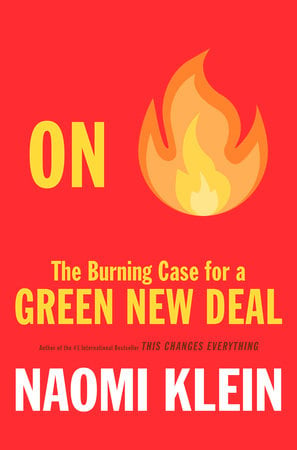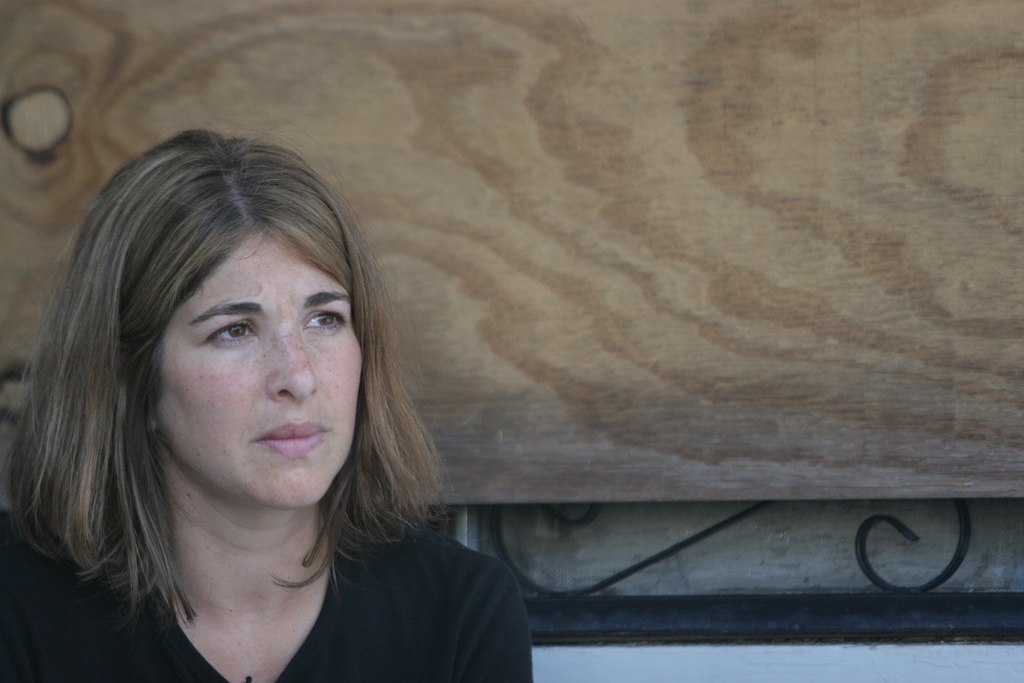Look
I understand too little too late
I realize there are things you say and do
You can never take back
But what would you be if you didn’t even try
You have to try
So after a lot of thought
I’d like to reconsider
Please if it’s not too late
Make it a cheeseburger
—“Here I Am,” Lyle Lovett
Lyle Lovett used his third album, released in 1989, to introduce his durable “large band” concept, but the album’s second track, “Here I Am,” delivered a notably small ask: Lyle just wanted a cheeseburger. Still, the pre-punchline lyric, with its emphasis on the existential import of effort and change, kept cycling through my head as I read Naomi Klein’s new On Fire: The (Burning) Case for a Green New Deal.
The Green New Deal, supporters and detractors agree, is a remarkably large ask. That may be the only thing on which supporters and detractors do agree.

How large? As outlined in House Resolution 109, introduced in February by Alexandria Ocasio-Cortez, the firebrand freshman representative from New York’s 14th Congressional District, it calls for the wholesale restructuring of the American economy in response to the threats of global climate change, including net-zero global emissions by 2050; extraordinary and immediate investments in energy, transportation, and real estate infrastructure; and the provision of guaranteed jobs, health care, and housing for all Americans, all achieved in conjunction with a resurgence of progessive values including labor rights, indigenous input, ecosystem restoration, sustainable food systems, income equality, and the protection of vulnerable communities.
Introduced in the Senate by Massachusetts Senator Ed Markey, the resolution—which called simply for recognition of the “duty of the Federal Government to create a Green New Deal” — failed 57-0 after Senate Majority Leader Mitch McConnell rushed a vote in late March. Forty-three Democrats and Independents chose to vote “present,” ostensibly in protest of McConnell’s no-debate show vote, but surely as well in fear of the political cost of attaching their support to the necessary expenditures, variously estimated in the high tens of trillions of dollars—an outlay that National Economic Council Director Larry Kudlow, President Trump’s chief economic adviser, predictably predicted would “literally destroy the economy.”
Canadian author and activist Klein, equally predictably, has a different take, which she presents with admirable concision, passion, and coherence in On Fire. The book is a chronological collection of her essays and speeches written over the course of a decade, and its argument boils down to this: Yes, implementing a Green New Deal will be outrageously expensive and enormously disruptive, but given the significantly-higher-than-cheeseburger stakes, we can’t afford not to. The alternative, we now have every reason to expect, is an unmitigated climate disaster that will render human civilization virtually unrecognizable within this century. And not in a good way.
In other words, we have to try.

Defining “we” is hardly the shortest of the plan’s hurdles. Mitch McConnell isn’t going to help, and neither can a Republican leadership that remains in thrall to climate deniers, End Times welcomers, resource looters, and the fossil fuel industry (but I repeat myself).
That leaves you and me and maybe Lyle Lovett. And what are we supposed to do about it?
According to 2018’s United Nations Intergovernmental Panel on Climate Change report, the planetary “we” has 12 years to reduce fossil fuel emissions by 45 percent—a task requiring, in the report’s words, “rapid, far-reaching and unprecedented changes in all aspects of society.” And we’ve already wasted decades of inaction since 1988, when governments first officially considered the prospect of controlling emissions. Politicians aren’t likely to lead the charge, even in the unlikely event that Jay Inslee becomes president. But they might respond to a mass movement. That, Klein argues, was the case with Franklin Roosevelt’s Depression-era New Deal, from which the Green New Deal takes its name and much of its model. But even that model is of limited utility in imagining the scale of effort Klein describes, for which, again according to the IPCC, “there is no historical precedent … in particular in a socially and economically sustainable way.”
Much of Klein’s task here is to inspire popular will sufficient to deliver a political mandate for such an undertaking, and that mandate will need an audience that isn’t dedicated to denial. In the current political climate, that means progressive Democrats. That confluence opens the Green New Deal to charges of partisan chicanery, and Klein expends significant effort countering the “conservative” suspicion that liberal elites are deploying an unfounded or overstated climate emergency as a “Trojan horse” whose true payload is a candy store of freedom-suppressing globo-socialist agendas. Klein, of course, has thoroughly analyzed precisely that strategy, in reverse political polarity, in her 2008 book The Shock Doctrine: The Rise of Disaster Capitalism.
And, well, what can one say? Yeah. The halt of current climate trends will require sacrifice. America’s military will have to stop being the globe’s foremost consumer of fossil fuels. You and I are going to have to stop shopping so much. Entire sectors of the economy will be upended, with unpromising consequences for millions of workers. Klein doesn’t dismiss these concerns. Rather, she defangs them with a classic rhetorical strategy: recasting the problem as an opportunity. What if, she writes, instead of allowing climate change to amplify income inequality and social injustice, we seize the chance to remake and repair a broken system? What if instead of continuing to devalue teachers and health care workers into economic serfdom, we invest in precisely that sort of “low-carbon” labor? What if instead of turning America into a walled garden of defense against global dislocation, we embrace pan-border cooperation in pursuit of unifying goals?
What if it’s not too late, and we don’t do too little, and there’s still time, if we’re brave enough to ask, to add cheese?
On Fire is a clarion call to that kind of courage and ambition, and for anyone inclined toward hope and action over resignation and denial, it’s inspiring. Those anyones tend to be young, and Klein opens and closes the book with paeans to the youth climate movement. How big that movement is, and what influence it might yet muster, is an open question, and beyond the scope of any reasonable critique of Klein’s book. But at least they’re trying.
This story is part of Covering Climate Now, a global collaboration of more than 220 news outlets to strengthen coverage of the climate story.
READ MORE:
-
If a Glacier Melts in the Arctic, the Texas Coast Feels It: A Q&A with the two Rice University anthropologists who will dedicate the world’s first memorial to a glacier lost to climate change.
-
Trump Administration Report: Climate Change Is Hurting Texas: If greenhouse gasses aren’t curbed, the Texas economy will likely face devastating consequences from climate change.
-
TCEQ Report Could Pave the Way for Chemical Plants to Emit More Hazardous Air Pollutants: A new assessment from the agency downplays the risks of ethylene oxide, a known carcinogen.







